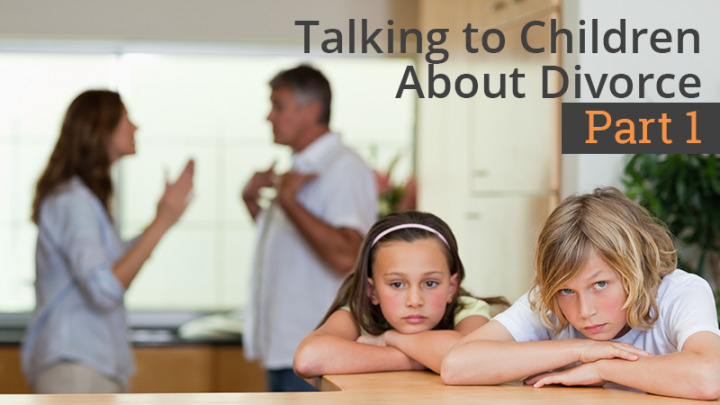By Tracy McConaghie, LCSW
Many parents dread the moment they tell their children they are getting a divorce. They fear their own emotions and the reactions they imagine their children will have. However, this conversation can be held in a healthy way that provides emotional connection and security. The following guidelines will help you prepare for this important family meeting:
Consider the Timing
While there is no exact science regarding when to tell your children about your divorce, it is important to give some thought to timing. It’s best to give children some time to process the new information with both parents present in the home. For example, two weeks before one parent moves out is a good time.
On the other hand, telling children that you will divorce, and then remaining together for months increases children’s anxiety (when is it going to happen?) and prevents them from finding closure and moving on to a secure new version of your family (maybe they changed their mind!).
If your family is in turmoil or there is a high level of conflict that the children are aware of, it is best to go ahead and have a conversation with the children even if it will be an extended time before somebody moves out. In that case, talk with the children about their awareness of the arguing or difficult times in the family. Let them know you love them, the arguments are not because of them, and you are working on what to do to make things better for the family.
If your child asks you if you are going to get a divorce, you can say that you do not know for sure yet what will happen, but you do know you are going to make sure they are loved and taken care of. Invite your children to share with you anytime they feel scared or sad while you are going through this process, and check in with them regularly about their feelings.
Tell the Truth
The first step is to be honest about what is happening. Tell the truth, but keep it simple: “We have something important to share with you. You have noticed that we have been going through some hard times in our family and Mom and I/Dad and I have not been getting along well. We have worked hard on this problem, but have decided it is best for us not to be married anymore. We are getting a divorce.”
It is also important to explain to children that the divorce is an adult matter and an adult decision that has nothing to do with them. Explaining that it is about feelings between the two of you alone can help prevent children from assuming the problem was caused by them or their behavior.
Don’t Tell the Whole Truth
The reasons adults get divorced are painful and often complicated. Children are not equipped developmentally or emotionally to understand those details, even though they may ask you for the reasons for your divorce when you talk with them about it.
Here are some possible appropriate responses when children ask “why?”
- “Sometimes adults have grown up problems that keep them from getting along well.”
- “Sometimes parents do not have the same kind of married love they used to have, and find it is better for them to be just friends.”
- “The problems we have are grown up problems that are not about you.”
It is especially important not to tell the full story if there has been an affair or betrayal. Remember that leaving information out of what you share with a child is not the same as lying. The parent who has been betrayed may feel they want to explain to their children that it is not their fault. While this is an understandable wish, it is harmful to children.
When children are aware one of their parents is against the other, or terribly hurt by the other, they cannot help but feel they must choose sides. For example, if a child’s mother hates their father, the child cannot understand how they will be able to love their father without hurting their mother. Children need both parents, especially after divorce, and choosing sides interferes with this very important need.
If your divorce is not a mutual decision, it is particularly challenging to keep what you share with children healthy and appropriate. Many parents feel they want their children to know the divorce was not their decision and they would never willingly do this to their children.
However, it is important to present the divorce as a decision that both of you are a part of. If you do not want the divorce at all, you can say something truthful such as “Even though it is sad and will take a little while to get used to, we both realize this is what has to happen.”
Children who know the details of which parent wants the divorce and which does not are burdened with overwhelming feelings of fear and anger. This prevents them from resolving their sadness about the divorce and moving forward in a positive way.
In part two of this series, we will discuss the importance of allowing your children to ask questions and the importance of reassuring them without sugar coating the details.
Tracy McConaghie and her husband Andrew McConaghie own McConaghie Counseling in Alpharetta. She specializes in helping children and families with divorce, parenting, anxiety and behavior problems. Andrew specializes in couples counseling, including divorce counseling. Both Andrew and Tracy help divorcing couples create successful parenting plans for their divorce. They are available for therapy or consultation in their office or via phone or video conferencing. You can also visit McConaghie Counseling online at www.mcconaghiecounseling.com.


